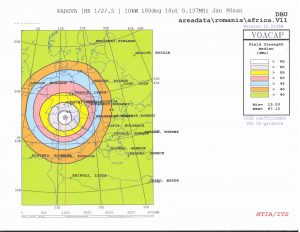Dear Brethren and Co-Workers in Christ:
Greetings from the Five Cities Region of California.
Pentecost is this weekend, so there will be back to back Sabbaths.
Yes, this disrupts the usual routine–but that is part of the reason God has the Holy Days.
Christians are to deleaven in the Spring, take Passover on the evening of the 14th, have holy convocations on the Holy Days, have back to back Sabbaths for Pentecost, fast (when safe) on the Day of Atonement, and go away for the Feast of Tabernacles.
Those are things that the faithful will do. They help shift our focus more on God than the routines in our life.
Anyway in this Letter, we have recommended services for Pentecost, in addition to one for the weekly Sabbath.
Pentecost
Most who profess Christ know something about Pentecost. Many properly consider it the start of the New Testament church.
After Jesus died, His disciples were told to wait to receive the power of the Holy Spirit:
4 And being assembled together with them, He commanded them not to depart from Jerusalem, but to wait for the Promise of the Father, “which,” He said, “you have heard from Me; 5 for John truly baptized with water, but you shall be baptized with the Holy Spirit not many days from now.” (Acts 1:4-5)
So they waited and:
1 When the Day of Pentecost had fully come, they were all with one accord in one place (Acts 2:1).
Notice that statement emphasizes that fact that the Day of Pentecost had fully come. The Bible is making it clear that the events that follow were directly related to the fact that the Day of Pentecost had fully come. And, it happened to the disciples because they were all observing it together.
Here is what happened then:
2 And suddenly there came a sound from heaven, as of a rushing mighty wind, and it filled the whole house where they were sitting. 3 Then there appeared to them divided tongues, as of fire, and one sat upon each of them. 4 And they were all filled with the Holy Spirit and began to speak with other tongues, as the Spirit gave them utterance. …
38 Then Peter said to them, “Repent, and let every one of you be baptized in the name of Jesus Christ for the remission of sins; and you shall receive the gift of the Holy Spirit. 39 For the promise is to you and to your children, and to all who are afar off, as many as the Lord our God will call.”
40 And with many other words he testified and exhorted them, saying, “Be saved from this perverse generation.” 41 Then those who gladly received his word were baptized; and that day about three thousand souls were added to them. 42 And they continued steadfastly in the apostles’ doctrine and fellowship, in the breaking of bread, and in prayers. …47 praising God and having favor with all the people. And the Lord added to the church daily those who were being saved. (Acts 2:2-4, 38-42, 47).
They received some of the power of Holy Spirit. And this is considered to be the start of the Christian church by the Roman Catholics, Eastern Orthodox, most Protestants, Jehovah’s Witnesses, and Church of God groups. So the Holy Spirit was given at a certain time (the same time that many of the Jews observed Pentecost) and that Jesus’ disciples were still observing it.
That was not a coincidence.
Many do not realize that Pentecost represented more than the giving of the Holy Spirit and the start of the New Testament church.
Looking at passages in Old and New Testaments provides more information about this day and its meaning.
The Feast of Pentecost was kept by Christians after the initial one, but with no mention of speaking in tongues. The Apostle Paul continued to keep Pentecost decades after the Pentecost mentioned in the second chapter of the Book of Acts. Notice what he wrote, about 56 A.D.:
8 For I do not wish to see you now on the way; but I hope to stay a while with you, if the Lord permits. But I will tarry in Ephesus until Pentecost (1 Corinthians 16:8).
This shows that Paul knew when Pentecost was, that he felt that the Corinthians must know when Pentecost was, and that the Ephesians would have known when Pentecost was. Thus, it apparently was being observed by Paul and the Gentiles in Ephesus and Corinth.
In another year, the Apostle Paul also wished to be in Jerusalem for Pentecost, around 60 A.D.:
16 For Paul had decided to sail past Ephesus, so that he would not have to spend time in Asia; for he was hurrying to be at Jerusalem, if possible, on the Day of Pentecost (Acts 20:16).
Thus, Christians in Jerusalem were still observing Pentecost and Paul was observing it too. Otherwise, there would be no obvious reason why Paul wanted to be in Jerusalem on the day of Pentecost.
The term Pentecost is a Greek term meaning 50th. That term is derived from the following Hebrew description of calculating the date:
15 And you shall count for yourselves from the day after the Sabbath, from the day that you brought the sheaf of the wave offering: seven Sabbaths shall be completed. 16 Count fifty days to the day after the seventh Sabbath (Leviticus 23:15-16).
The Day of Pentecost has several names, and because of that, some have been confused about it. Its other biblical names include: the Feast of Harvest, the Feast of Weeks and the day of firstfruits.
Singing often accompanied the holy festivals of God, which started at sunset:
29 You shall have a song As in the night when a holy festival is kept, And gladness of heart as when one goes with a flute, To come into the mountain of the Lord, To the Mighty One of Israel. (Isaiah 30:29)
Modern Jews tend to call Pentecost by the term Shavuot.
Some have been confused when Pentecost is. Many Jews do not keep it on the same day that the Continuing Church of God keeps it.
The Jewish Sadducees correctly said “that Pentecost would always fall on Sunday,” however “[i]n post-Talmudic and geonic literature … Pentecost falls on the 6th of Siwan” (Pineles, “Darkeh shel Torah,” p. 212, Vienna, 1861; Pentecost. Jewish Encyclopedia of 1906). The date many Jews now use (which is in post-Talmudic literature which was put together after the Old Testament and is not scripture), is a later change and not the biblical date. We in the Continuing Church of God observe the biblical method.
Notice also the following from former Chief Rabbi Lord Sacks:
The Pharisees, who believed in the Oral Law as well as the Written one understood “the Sabbath” to mean, here, the first day of Pesach (15 Nisan). The Sadducees, who believed in the Written Law only, took the text literally. The day after the Sabbath is Sunday. Thus the count always begins on a Sunday, and Shavuot, fifty days later, also always falls on a Sunday. (Sacks L. Judaism: A Thought for Shavuot. Arutz Sheva, June 3, 2014.)
Christians should remember that Jesus condemned the Pharisees for relying too much on the oral law over the written law (Mark 7:5-13). Jesus told them they were “making the word of God of no effect through your tradition which you have handed down. And many such things you do” (Mark 7:13).
And, as shown below, Pentecost refers to the time of counting fifty as being associated with firstfruits:
16 Count fifty days to the day after the seventh Sabbath; then you shall offer a new grain offering to the LORD. 17 You shall bring from your dwellings two wave loaves of two-tenths of an ephah. They shall be of fine flour; they shall be baked with leaven. They are the firstfruits to the LORD (Leviticus 23:16-17).
When you count fifty days to the day after the seventh Sabbath, you find that Pentecost is always to come on a Sunday. Pentecost runs from sunset Saturday until sunset Sunday. Irenaeus, who claimed to have met Polycarp of Smyrna wrote that the apostles kept Pentecost on a Sunday (Fragments of Irenaeus, 7).
Pentecost is a feast of firstfruits.
The use of the term “firstfruits” suggests a second harvest. And actually, this too is pointed out in the Old Testament:
16 …the Feast of Harvest, the firstfruits of your labors which you have sown in the field; 17 and the Feast of Ingathering at the end of the year, when you have gathered in the fruit of your labors from the field (Exodus 23:16-17).
22 And you shall observe the Feast of Weeks, of the firstfruits of wheat harvest, and the Feast of Ingathering at the year’s end (Exodus 34:22).
26 Also on the day of the firstfruits, when you bring a new grain offering to the LORD at your Feast of Weeks, you shall have a holy convocation (Numbers 28:26).
While some Protestant commentators refer to the wave sheaf offering as the feast of firstfruits (e.g. Radmacher E.D. ed. The Nelson Study Bible. Thomas Nelson Publishers, Nashville, 1997, p. 213), this is a misnomer. While “a sheaf of firstfruits” was offered then (Leviticus 23:10-11), as shown above, the Bible refers to the Feast of Weeks as the time of firstfruits (not simply one sheaf).
How does the idea of firstfruits help us understand this day?
The Feast of Pentecost or Feast of Firstfruits (Exodus 34:22) reminds us that God is now calling only a small “firstfruits” spiritual harvest, with the Last Great Day coming which pictures a greater harvest later. The Spring harvest, in most areas, in much smaller than the greater Fall harvest, and this is consistent with God’s plan of salvation for humanity.
But what about Jesus? Wasn’t He a type of firstfruits?
Yes, He certainly was. Paul notes:
20 But now Christ is risen from the dead, and has become the firstfruits of those who have fallen asleep. 21 For since by man came death, by Man also came the resurrection of the dead. 22 For as in Adam all die, even so in Christ all shall be made alive. 23 But each one in his own order: Christ the firstfruits, afterward those who are Christ’s at His coming. (1 Corinthians 15:20-23).
Christ is the fulfillment of the wave sheaf offering in Leviticus 23:10-11. He is the sheaf of firstfruits. He also fulfilled that role when He ascended into heaven on the Sunday (the wave sheaf offering was on a Sunday) after He was resurrected (John 20:1,17). But neither He nor His true followers observed what is now called Easter.
Also, James notes that Jesus brought us forth to also be a type of firstfruit:
18 Of His own will He brought us forth by the word of truth, that we might be a kind of firstfruits of His creatures (James 1:18).
So while Jesus was the original firstfruit to represent the wave sheaf offering, true Christians are a kind of firstfruits, represented by the Day of Pentecost. “Firstfruits” mean that only a few will be part of the harvest in this age (cf. Luke 12:32; Romans 9:27; 11:5)–but they also imply that there will be a greater harvest–a time where all who never had an opportunity for salvation will later have a true and real opportunity.
Notice what Peter stated on Pentecost:
29 “Men and brethren, let me speak freely to you of the patriarch David, that he is both dead and buried, and his tomb is with us to this day. 30 Therefore, being a prophet, and knowing that God had sworn with an oath to him that of the fruit of his body, according to the flesh, He would raise up the Christ to sit on his throne, 31 he, foreseeing this, spoke concerning the resurrection of the Christ, that His soul was not left in Hades, nor did His flesh see corruption. 32 This Jesus God has raised up, of which we are all witnesses. 33 Therefore being exalted to the right hand of God, and having received from the Father the promise of the Holy Spirit, He poured out this which you now see and hear. (Acts 2:29-33)
Notice that Peter, on Pentecost, referred to Jesus as fruit and that He was raised. Pentecost shows that God blesses this small harvest by granting His Holy Spirit so that we can overcome, do His work and grow spiritually even though living in “this present evil age” (Galatians 1:4)
Now Jesus was not only the first of the firstfruits, He was also the firstborn among many brethren:
29 For whom He foreknew, He also predestined to be conformed to the image of His Son, that He might be the firstborn among many brethren (Romans 8:29).
5 Jesus Christ, the faithful witness, the firstborn from the dead (Revelation 1:5).
Since Jesus is the firstborn, this certainly implies that there will become others who are to be like Him. Thus, becoming like Jesus Christ is also part of the message of Pentecost. Of course the idea of becoming like Christ is taught throughout the Bible and is not limited to Pentecost. Notice what John wrote:
2 …we shall be like Him (1 John 3:2).
Because it is a holy convocation, it is observed similar to a weekly Sabbath, but with offerings (Deuteronomy 16:16). In the Old Testament, the Feast of Weeks, involving firstfruits, was kept 50 days after the Sabbath after Passover.
After the death of Christ, the apostles gathered together on that date. And on that date, the Holy Spirit was poured out to provide Christians access to God as a kind of firstfruits. Jesus was the first of these firstfruits and Christians who are called in this age are also to be firstfruits as He is (those called later are also to be as Jesus is, but simply will not be firstfruits).
Elder Aleksandar ‘Sasha’ Veljic sent the following sermon:
Here is a link to his sermon: Pentecost Sermon by Sasha Veljic.
Can Holy Days Be Kept Outside of Jerusalem?
Some have indicated that the biblical Holy Days cannot be kept now as they would require that everyone would go to Jerusalem.
But that was not the case historically, even with Jesus.
Towards the start of His ministry while in Nazareth, Jesus spoke on the “day of the sabbaths” (Luke 4:16). Pentecost is also called the Feast of Weeks/Sabbaths (Deuteronomy 16:10,16). That Luke meant the plural can be confirmed by looking at the actual Greek term. The actual word (not the Strong’s grouping of like words) for sabbaths, σαββάτων, is plural (σαββάτω, as in Luke 14:1, is singular). The passage is literally translated as follows:
16 And He came into Nazareth where He was brought up. And according to His custom, He went in on the days of the sabbaths, into the synagogue, and stood up to read. (Luke 4:16, Green)
So, this helps show that one could keep a Holy Day, as Jesus did, in a location other than Jerusalem. He also seemed to possibly keep another holy day in Galilee in Luke 6:1-2 (Green JP, Sr. Interlinear Greek-English New Testament, third edition. Baker Books, 2002).
Perhaps it should be mentioned that when the Samaritan woman indicated that worship should possibly be restricted to the Jerusalem area (John 4:19), Jesus said that there was not a Jerusalem worship restriction:
21 Jesus said to her, “Woman, believe Me, the hour is coming when you will neither on this mountain, nor in Jerusalem, worship the Father. 22 You worship what you do not know; we know what we worship, for salvation is of the Jews. 23 But the hour is coming, and now is, when the true worshipers will worship the Father in spirit and truth; for the Father is seeking such to worship Him. 24 God is Spirit, and those who worship Him must worship in spirit and truth.” (John 4:21-24)
The New Testament clearly shows that Holy Day or other worship is not restricted to Jerusalem (see also Matthew 10:23).
It should be noted that the Greco-Roman churches also recognize that Pentecost, sometimes referred to as the feast of weeks (Leviticus 23:15-16) or the day of firstfruits (Number 28:26) in the Old Testament, had Christian significance. And they do not restrict its observance to one city.
Consider also that the idea of Christians being firstfruits is confirmed in the New Testament (James 1:18). In ancient Israel, there was a smaller harvest in the Spring and a larger harvest in the Fall. The Spring Holy Day Pentecost, when properly understood, helps picture that God is only calling some now for salvation (John 6:44; 1 Corinthians 1:26; Romans 11:15) with a larger harvest coming later (John 7:37-38).
Many Greco-Roman churches observe some version of Pentecost. Yet, partially because they do not observe certain other biblical holy days, they fail to understand why God is only calling some now, and that He does have a plan to offer all salvation (Luke 3:6; Isaiah 52:10). “Mercy triumphs over judgment” (James 2:13).
AM and Shortwave Radio
As mentioned in an earlier Letter to the Brethren, we have been working on increasing our radio presence, both online and through more traditional broadcast media.
We are pleased to announce that we have signed an agreement to be on AM radio in Europe, as well as on a shortwave radio station that targets Europe, North Africa, and parts of the Middle East. Although shortwave is not used much in North America, it reportedly has hundreds of millions of listeners around the world.
We have agreed and paid to be on European Gospel Radio (EGR) for one year. This will be four days per week on its AM station, and three days per week on its shortwave station. This is to be Monday through Thursday each week:
COMBO SW+AM on Tue, Wed, Thu at 20:30-20:45 (8:30-8:45 PM) Central European Time
ii.) AM only on Mon 21:30-21:45 (9:30-9:45 PM) Central European Time
The following is the coverage map for the AM signal for its new 1323 kHz signal location:
The AM broadcast is in the late evening/early night, so it looks like people in several European nations will be able to hear it. EGR claims:
European Gospel Radio (EGR) is a premier Christian station and Christian Broadcasting Network outreaching millions of people not only in Europe, but WorldWide.
We are also on shortwave at 729.0 from them.
We have been working behind the scenes to get ready to be on the air and are now working on tying up a few lose ends.
We expect to start being on the air this July.
Radio is a proclamation door that we use to reach those we otherwise would not reach.
As mentioned a few weeks ago, we should be, for the time being, be relatively uncensored so we can proclaim the coming Kingdom of God and other biblical truths over the air from Europe.
Malawi Trip
Evangelist Evans Ochieng arrived in Malawi on Friday. He sent the following photos and reports:
Greetings from Malawi.I arrived safe in Malawi. The weather was good and the landing was safe not like the last time.I was received by pastor Molozwa and deacon John Machemba from mwanza who is also in charge of SALIMA.Today I kept Sabbath in SALIMA near lake Malawi. The meeting was very good. I met more than 40 people including children.Our topic today was about repentance and reconciliation. Again I touched more about the book of life.I’ll be travelling more than 500 miles tomorrow to meet many congregations northern part of Malawi.EvansPastor Dr Bob,
Greetings from Malawi.I’m back from a long trip from Chileka. I travelled more than 350 miles today to meet the brethren in Chileka near Chileka airport.I met with 30 people. The main topic today was about GOD’S church, the holydays and why Passover. The meeting was very good and after finishing, an old woman gave me a gift of brush and another man also did the same. That was all that they could give. I really appreciated the type of faithful people I met today. I learned something important in them. The sermon was inspired by the ALMIGHTY GOD and it was a strong sermon. Most of people decided to go for baptism. So I will teach them the importance of baptism.The most problem I’m getting in Malawi is where they are meeting. …The road was very rough and I’m tired I need to rest.The total number of people who are in this congregation are 65. Pray for these faithfull people to get good hall. Molozwa has bought for them iron sheets.Evans.
Suggested Sabbath Service
Here is a suggested service for the weekly Sabbath:
- 2-3 hymns (our songbook, The Bible Hymnal, contains the materials from the 1974 Bible Hymnal from the old WCG with new covers, plus ten additional hymns; there is also some Choral Accompaniment online).
- Opening prayer.
- Sermonette: Could the “Cathedra Petri” be Satan’s Throne? Other sermonettes are available at the BitChute Prophecy channel https://www.bitchute.com/channel/prophecy/ and other CCOG used platforms.
- Announcements (if any) and one hymn.
- Sermon: Holy Mother Church and Heresies. Other sermons are also available at the ContinuingCOG channel.
- Final hymn.
- Closing prayer.
Here is a suggested service for the Pentecost:
- 2-3 hymns (our songbook, The Bible Hymnal, contains the materials from the 1974 Bible Hymnal from the old WCG with new covers, plus ten additional hymns; there is also some Choral Accompaniment online).
- Opening prayer.
- Offertory: Pentecost Offertory: Reach Others. Other sermonettes are available at the Bible News Prophecy channel.
- Announcements (if any) and one hymn.
- Sermon: Pentecost Sermon by Sasha Veljic. Other sermons are also available at the ContinuingCOG channel.
- Final hymn.
- Closing prayer.
For those who wish two services in English, here is a second suggested service:
- 2-3 hymns (our songbook, The Bible Hymnal, contains the materials from the 1974 Bible Hymnal from the old WCG with new covers, plus ten additional hymns; there is also some Choral Accompaniment online).
- Opening prayer.
- Animated message: Big Bang: Nothing or Creator? Other sermonettes are available at the Bible News Prophecy channel such as Digital 10 Commandments Heresy.
- Announcements (if any) and one hymn.
- Sermon: God’s Pentecost Plan and Your Part in It or by Louis Rubin: Pentecost: is it Just Acts 2?
- Other sermons are also available at the ContinuingCOG channel.
- Final hymn.
- Closing prayer.
For those who listen in Spanish we have translated some message:
English title: Pentecost Offertory: Reach OthersSpanish title: Ofertorio PentecostesSpanish YouTube link: https://youtu.be/rs_C5HjYN3UEnglish title: 17 Last Days’ Signs of the Holy SpiritSpanish title: 17 señales del Espíritu Santo en los últimos DíasSpanish YouTube link: https://youtu.be/Sn_6DXZHwss
A Pentecost sermon by Steve Dupuie titled God’s Holy Day of Pentecost was translated into the Spanish language and uploaded: El dia santo de Dios de Pentecostes. So, for those wishing two services in Spanish, here is a second:
English title: Holy Days Offerings
Spanish title: 1 ¿Porque Offrendas en los dias Santos?English title: God’s Holy Day of Pentecost
Spanish title: El dia santo de Dios de Pentecostes
Spanish link: https://www.youtube.com/watch?v=49LfTZryNvo&feature=youtu.be
Note: If you have a slow internet connection, you can watch these by starting the video, then below it (and towards the right) look for an outline of a gear–if you click on that, it will allow the YouTube video to be played with lower video quality, but at least it will not stop often–you can select a quality as low as 144p. If your internet connection is still too slow (as my home one is) and/or you prefer audio messages to audio-visuals ones, go to the YouTube link for the message, click on SHOW MORE related to the description. You will then see something that says, “Download MP3.” Below that is a link to an MP3 file. Most computers (and even some cellular telephones) will allow MP3 files to be downloaded and played. This is an option we have made available (but we are also looking into ways to improve that as well)–and, of course, we have written article options. Some people have found that if their internet connections are not fast enough, that they can simply listen to the messages that are found at the Bible News Prophecy online radio channel. Note: If there are ever commercials before, during or after, they ARE NOT from us nor do we receive money from them–but sometimes platforms put them up.
IN CASE YOU DO NOT RECEIVE A ‘LETTER TO THE BRETHREN’ FOR ANY WEEK, REMEMBER THAT THERE ARE MANY SERMON MESSAGES ON THE ContinuingCOG channel AND MANY SERMONETTE MESSAGES ON THE Bible News Prophecy channel. There are also some messages at the CCOGAfrica channel. There are also messages in the Spanish language at the CDLIDDSermones channel.
World News Items
Inflation and the food supply remain concerns around the world (see Dw: Eurozone inflation reaches record 8.1% in May; NM: US Wheat Crop Hit by Dry Winter Then Soggy Spring, Adding to Global Tightness). The ride of the third horseman of the Apocalypse is associated with food scarcity and food price inflation per Revelation 6:5-6.
Wars and taking away peace is associated with the second horseman of the Apocalypse per Revelation 6:3-4. With Russia’s military actions in Ukraine (see AP: Russian, Ukrainian troops fight block by block in key city), and the US intending send longer range missiles there (see US to Send ‘Advanced Rocket Systems’ to Ukraine), we are seeing some of that.
At last week’s meeting of the World Economic Forum in Davos, Switzerland, the CEO of MasterCard put forward the idea that national central banks will have digital currencies in 5 years (see Mastercard CEO: SWIFT Payment System May Be Replaced By CBDCs In Five Years; COGwriter: Or Less). If certain world events occur, Europe may see that sooner, which would allow for the ‘666’ buying and selling prophecies of Revelation 13:16-18 to be fulfilled. Other events at Davos are also consistent with that (see Davos Reveals Building-Blocks For “Green” Social-Credit System; Rand Paul Slams WEF:’Elites Want World Government, It’s Not A Conspiracy Theory’; and What about God’s plan?).
Concluding Comments
Although all the messages to the Churches state, “I know your works,” it is only to Philadelphia that Jesus says, “See, I have set before you an open door, and no one can shut it.”
What is the “open door”?
Let us look at this concept within the New Testament and let the Bible interpret itself.
Paul wrote:
12 Furthermore, when I came to Troas to preach Christ’s gospel, and a door was opened to me by the Lord (2 Corinthians 2:12).
8 But I will tarry in Ephesus until Pentecost. 9 For a great and effective door has opened to me (1 Corinthians 16:8-9).
2 Continue earnestly in prayer, being vigilant in it with thanksgiving; 3 meanwhile praying also for us, that God would open to us a door for the word, to speak the mystery of Christ, for which I am also in chains, 4 that I may make it manifest, as I ought to speak (Colossians 4:2-4).
Luke wrote:
27 Now when they had come and gathered the church together, they reported all that God had done with them, and that He had opened the door of faith to the Gentiles (Acts 14:27).
Thus, the Bible is quite clear that the open door is the door to proclaim the Gospel.
Herbert W. Armstrong understood that the door was opened to proclaim the gospel:
Also a door was to be opened for this leader and/or the Philadelphia era of the Church to fulfill Matthew 24:14: ‘And this gospel of the kingdom shall be preached to all the world for a witness unto all nations; and then shall the end come’ (Mystery of the Ages, pp. 290-291).
It was not until the 20th century that the technology of automated transportation and electronic media (such as radio and television) came forth to allow the Church of God (COG) to have much international impact. Herbert W. Armstrong began to broadcast on the radio beginning in 1933.
I see the radio opportunity in Europe as an open door.
Since there is a prophesied ‘famine of the word’ (Amos 8z;11-12), I do not believe that it will be open forever.
But it is open to us now.
Sincerely,
Bob Thiel
Pastor and Overseer




